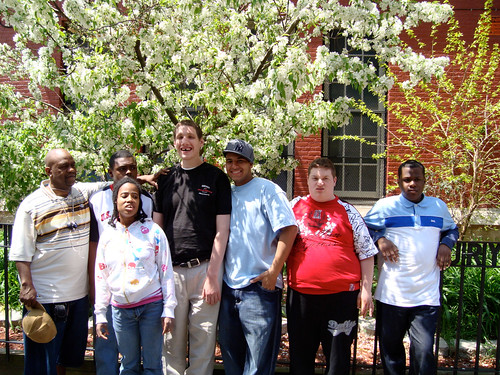A picture of the kids I taught for 3 years in NYC (I miss them so much!) and a great article from the New York Times.
Retracting a Medical Journal’s Autism Study
By TARA PARKER-POPE
Last week, the highly regarded medical journal, The Lancet, retracted a much debated 1998 study that had linked the measles, mumps and rubella vaccine to autism.
The study was retracted after concerns about ethical breaches by one of the study authors. In addition, 10 of the 13 co-authors have disavowed the study’s conclusions. ”We fully retract this paper from the published record,” The Lancet editors said in a statement.
But the damage has been done. The paper has fueled fears about the risks of childhood vaccinations and autism, particularly the M.M.R. vaccine, despite numerous studies showing no link.
This week, National Public Radio’s “On the Media” explored the role the media played in inflaming fears about vaccines and autism, asking how “bad science” made its way into The Lancet and the “collective psyche.” Dr. Richard Horton, editor of The Lancet, responded:
This was a system failure. We failed. I think the media failed. I think government failed. I think the scientific community failed, and we all have to very critically examine what part we played in this. I think the media certainly did sustain the story over a decade. It became a political story with “Did Tony Blair have his son vaccinated with M.M.R. or not?” Suddenly a huge media furor around that. … I think we all have to look very carefully at ourselves and say, “We really messed up here.”
Dr. Horton also discussed how the episode has changed The Lancet’s policies as well as the potential for open scientific debate.
We used to think that we could publish speculative research which advanced interesting new ideas which may be wrong, but which were important to provoke debate and discussion. We don’t think that now. We don’t seem able to have a rational conversation in the public space about difficult controversial issues without people drawing a conclusion which could be very averse. … The 19th-century days where you could sit in the salon at the Royal Society and have a private conversation amongst your fellows just doesn’t exist anymore. So I think yeah, too much information in this particular case is a bad thing, which seems to go against every kind of democratic principle that we believe in. But in the case of science, it seems to be true.
He also commented on whether the retraction even matters at this point, and whether it’s too late to make a difference in the debate about vaccines.
I certainly hope that our retraction today will help to reassure parents that there really isn’t anything to be concerned about with the vaccine. I think there’s a history over many hundreds of years of anti-vaccine movements. We are going to see many, many more vaccines available to the general public, and we all have to be very vigilant about making sure that we build trust and confidence in these vaccines which are going to transform the landscape of health over the next generation.
Monday, February 8, 2010
AUTISM UPDATE
Subscribe to:
Post Comments (Atom)





No comments:
Post a Comment